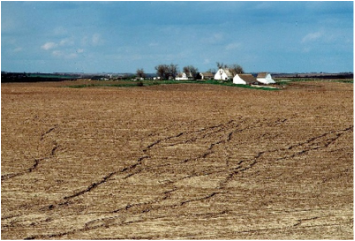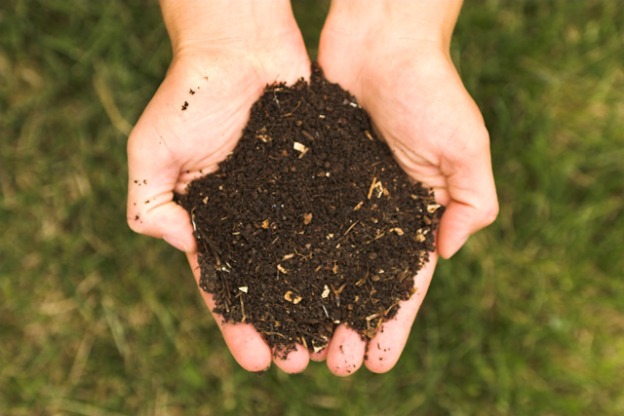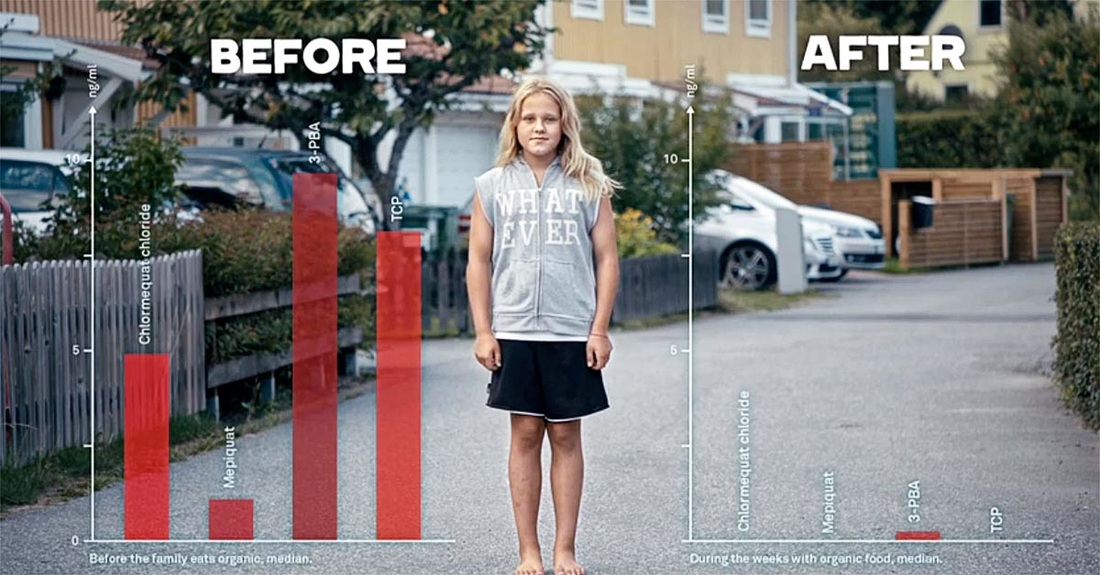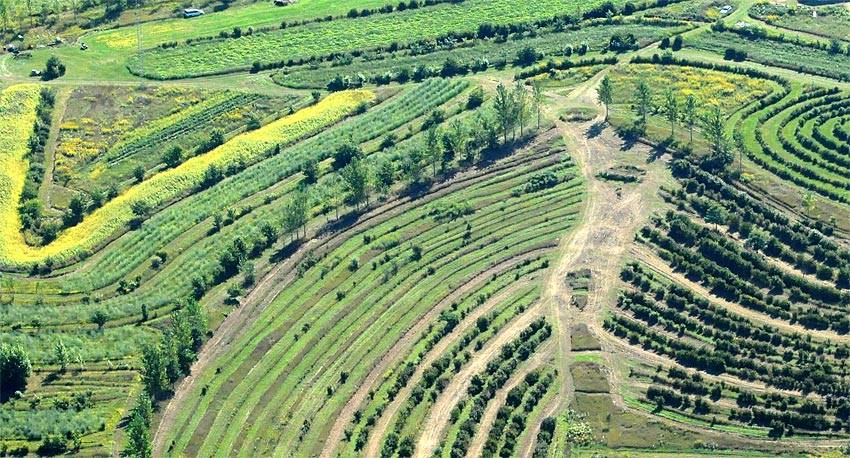|
“No serious investigation into nutrition can be made without a thorough knowledge of the principals of soil health and its relationship to the food produced.” -Bernard Jensen Just like we use Fat, Protein and Carbohydrates as our macronutrients, plants have their own. So, what nutrients do plants need? carbon, oxygen, and hydrogen, as well as nitrogen, phosphorus, and potassium. The first three plants get from the air and water which are then processed via photosynthesis. The last three come from the soil. (that is if it's healthy soil, like the second photo above) Secondary nutrients: Calcium, Magnesium, and Sulfur. Micronutrients: Boron, Chlorine, Cobalt, Copper, Iron, Manganese, Molybdenum, Nickel, Silicon, Sodium, Zinc, and Vanadium. UNFORTUNATELY modern farming practices are void of most of these nutrients. Some people ask, "what is the difference between Organic and Non-Organic fruits and veggies…well, sometimes there is not much. Organic basically means that pesticides aren't used on them, which is a very good thing, but it says nothing of the nutrient composition. Most organic farms, I assume, have healthier soil then non-organic but I'm sure there are some with soil like the first picture above. I buy Organic whenever possible so I'm not ingesting toxins, but my second goal with fruits and veggies is to buy local from a farmer who cares about their soil like their own body. It's interesting, when the soil is healthy there is no need for pesticides and other toxins. Healthy soil self regulates. Duh! Why do we always want to fight against nature instead of working within it's systems? Oh, that's right, MONEY! It's always all about money, isn't it? Before and After: Toxin load in the body when eating Non-Organic and Organic. This is one of the reasons Johnny and I want to start a farm. Johnny is trained in Permaculture (sustainable agriculture, basically) and has studied a lot about soil health. It make us the perfect team because he can make sure the soil is healthy so that the food we are eating and sharing with others is nutrient dense. If our soil is depleted then we also will be depleted. You can see it. We have an abundance of food and a lack of nutrients. This is why you see so many people with health issues that eat a so called, "healthy" diet. If our food doesn't get the correct nutrients for their growth then we won't get the correct nutrients for our growth. A little exert from: http://www.natural-health-information-centre.com/depleted-soils.html "Why is the soil depleted? As long ago as the 1920s, the British and US Governments were warned by nutritional experts that the soils on which most crops were grown were so deficient in mineral content that the foods grown on them contained less than 10% of the vitamins and minerals they should have. The intention of these reports was to highlight the problem so that remedial action could be taken to remineralise the soils, leading, once again, to naturally healthy fruits and vegetables. Unfortunately, neither Government took any action to correct this problem, and as a result, which has been intensified by modern intensive farming methods, the fruits and vegetables not only have little or no vitamin and mineral content, but they are routinely sprayed with such a broad selection of chemicals that they are actually poisonous. How can plants grow without vitamins and minerals? Good question. Most plants require only three nutrients to grow, namely nitrogen, phosphorus and water. In the presence of these nutrients, virtually all plants will grow into what appear to be healthy, nutritious adult specimens. However, if the minerals found in their natural habitat are not present, such plants and their relevant fruits and vegetables will be nutritionally "empty". As a result of this, these plants are less able to defend themselves against natural predators and are susceptible to insect attack and damage from viruses / bacteria. In order to control this, insecticides, antifungals, antibiotics, pesticides and dozens of other categories of chemicals have been designed to limit the damage done to plants by their natural enemies. Unfortunately, many of these chemicals have not been properly tested to assess their effects on either plant or human health, and virtually none have been tested in combination to assess their combined effects. The result is that most fruits, vegetables and other plant-based foods are so contaminated with a huge variety of chemicals, and so deficient in nutrient content that they actually do more harm than good." {I've had people say to me, "we have to farm this way in order to feed the billions of people on this earth! But, if we farm this way, we will only be able to feed people for a short amount of time before we totally deplete the land of all it's vitality and all it's nutrients. Wouldn't we rather farm in a way that cares for the soil and can continue on for generations? We are literally running ourselves into the ground.} "When the Earth's population was smaller people could move from one place to another and give soil a chance to regenerate. But now, with more than 6 billion people on the planet, that option no longer exists." -David R. Montgomery So…THE HEALTH OF OUR SOIL IS IMPORTANT! We need to care about this and support farmers who are caring for their soils! Here are a few {large scale} farmers doing rad things! (I wish this is how all farms operated) 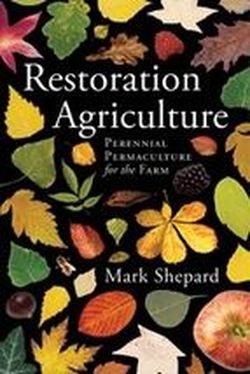 Mark Shepard: New Forest Farm "In 1995, Mark Shepard and his family moved to the hills of Southwest Wisconsin to start a new kind of farm. Instead of just growing annual grains, vegetables, or livestock, they wanted to establish a perennial farm, modeled on native ecosystems, to produce abundant food, fiber, and fuel while restoring critical ecosystem services. New Forest Farm is now one of the most developed and productive perennial farms in North America - growing abundant crops and livestock, while sequestering carbon, building soil, recharging groundwater, and enhancing wildlife habitat and biodiversity. " www.newforestfarm.net 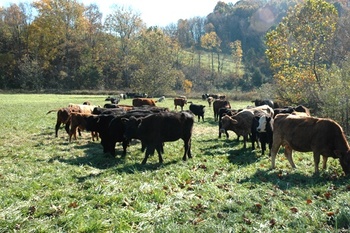 “This magical, marvelous food on our plate, this sustenance we absorb, has a story to tell. It has a journey. It leaves a footprint. It leaves a legacy. To eat with reckless abandon, without conscience, without knowledge; folks, this ain't normal.” ― Joel Salatin, Folks, This Ain't Normal: A Farmer's Advice for Happier Hens, Healthier People, and a Better World 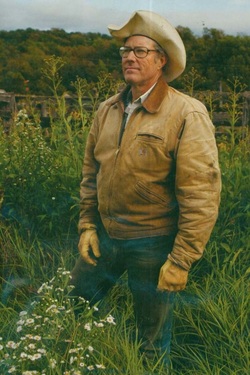 Joel Salatin: Polyface Farms Disregarding conventional wisdom, the Salatins planted trees, built huge compost piles, dug ponds, moved cows daily with portable electric fencing, and invented portable sheltering systems to produce all their animals on perennial prairie polycultures. Today the farm arguably represents America’s premier non-industrial food production oasis. Believing that the Creator’s design is still the best pattern for the biological world, the Salatin family invites like-minded folks to join in the farm’s mission: to develop emotionally, economically, environmentally enhancing agricultural enterprises and facilitate their duplication throughout the world. The Salatins continue to refine their models to push environmentally-friendly farming practices toward new levels of expertise. www.polyfacefarms.com “How much evil throughout history could have been avoided had people exercised their moral acuity with convictional courage and said to the powers that be, 'No, I will not. This is wrong, and I don't care if you fire me, shoot me, pass me over for promotion, or call my mother, I will not participate in this unsavory activity.' Wouldn't world history be rewritten if just a few people had actually acted like individual free agents rather than mindless lemmings?” ― Joel Salatin, Everything I Want to Do Is Illegal: War Stories from the Local Food Front We really do have the power when we vote with our money. Not only will we affect change in the soil, but we will affect change with the health of all organisms, animals and people. Food is the base of life, and we're losing it. Buy local, gain knowledge and support the soil.
0 Comments
Leave a Reply. |
Details
Bailey Patrice & Jonathan DavidCategories
All
Date
December 2017
|
